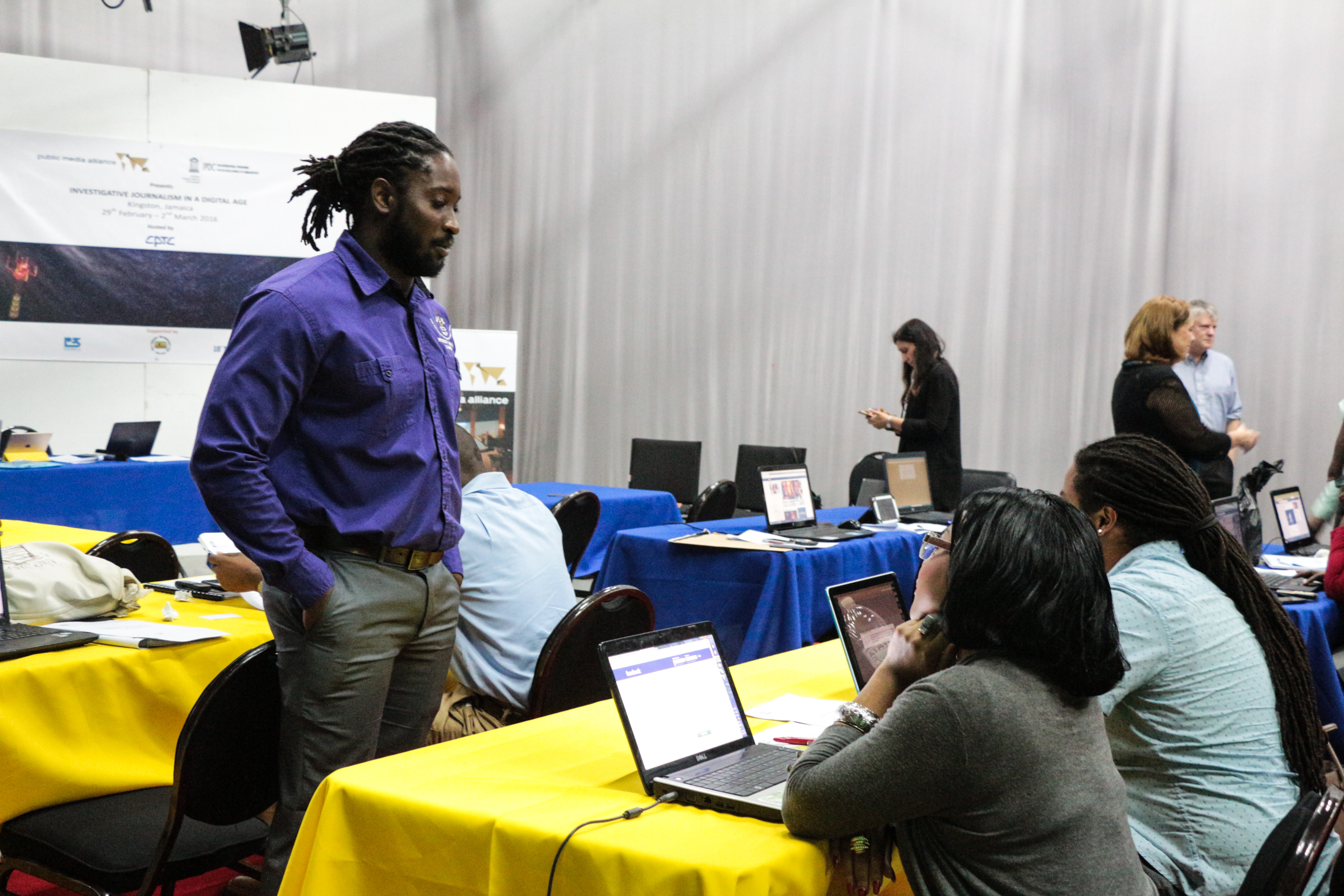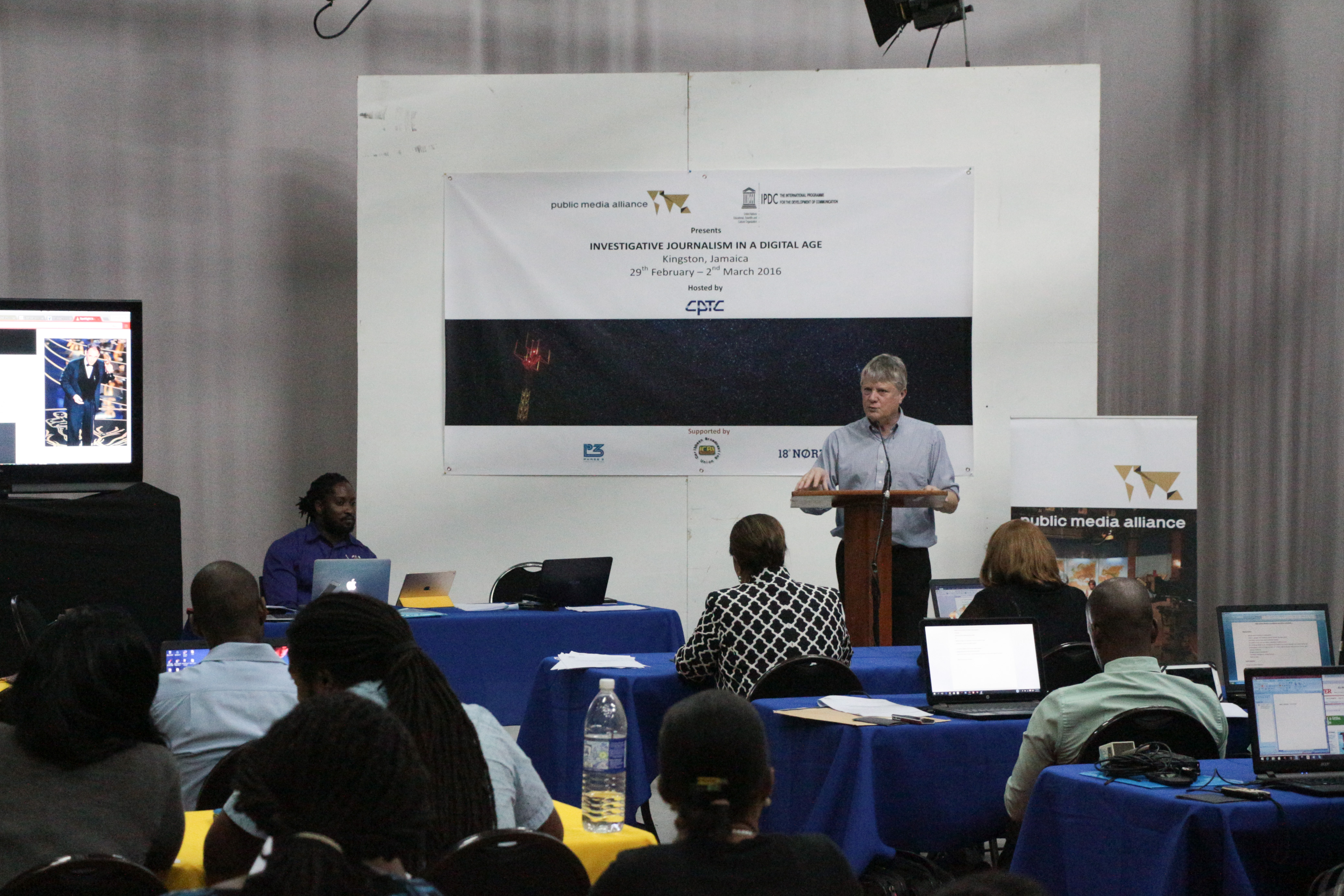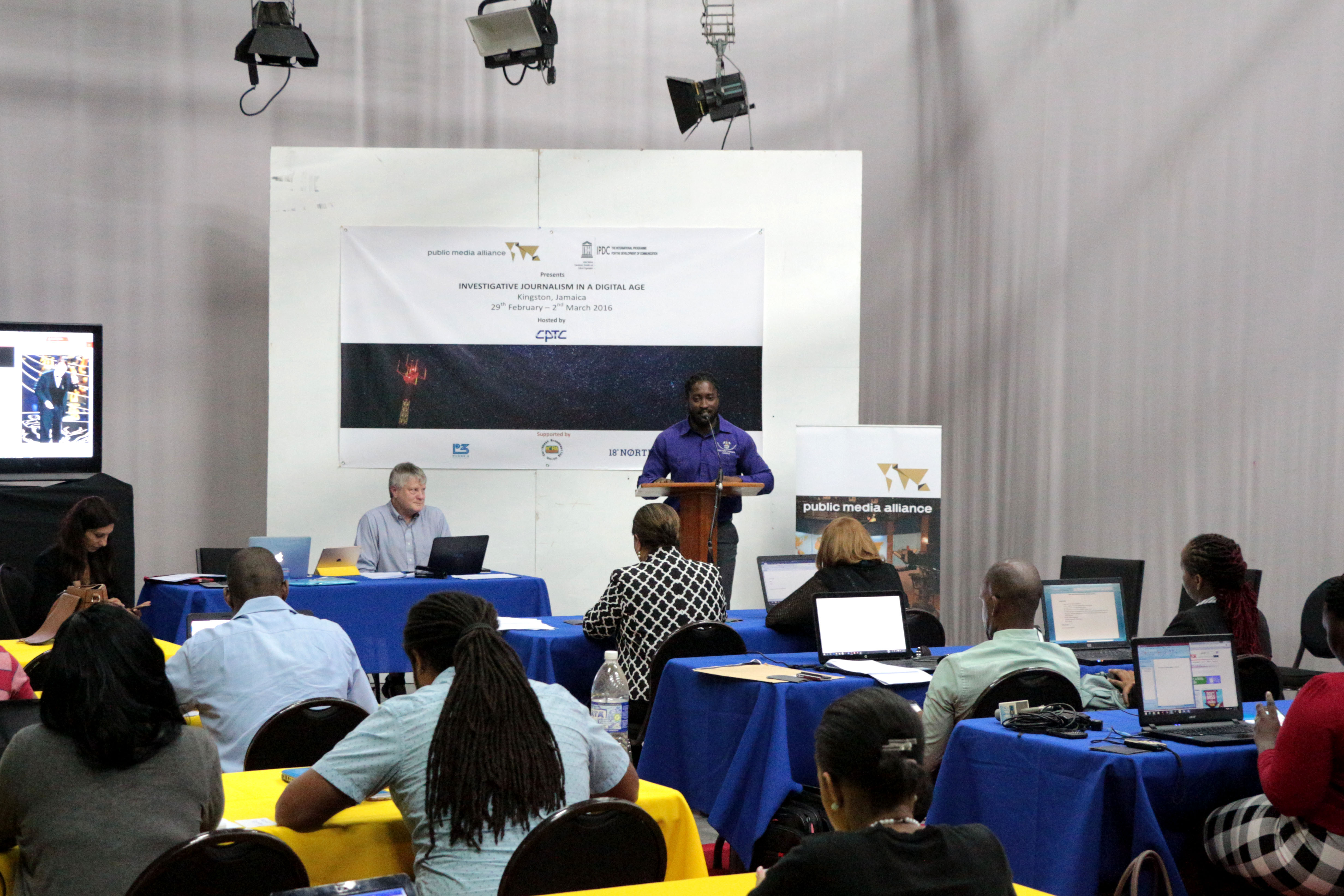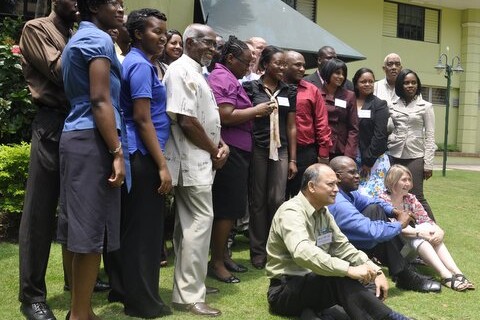Steffon Campbell was a facilitator at PMA’s Investigative Journalism in the Digital Age workshop in Kingston, Jamaica. Here, the communication lecturer discusses the need for similar workshops across the region.
Investigative Journalism workshops as pathways to the development of journalism in the Caribbean
By Steffon Campbell

The Caribbean, as unique a region as it may be, experiences similar issues that face other territories around the world. In the same light, the tools and techniques that are being utilized by journalists worldwide can be applied to the Caribbean context in order to improve the quality and subsequent impacts of news reports. These two realisations were perhaps the most significant coming out of the UNESCO & PMA Workshop on Investigative Journalism in a Digital Age, held between February 29 and March 2 in Kingston, Jamaica.
Through the exercises and group discussions it was evident that there were commonalities among the stories that the participant Caribbean journalists covered; topics such as crime, corruption, education and the environment. But noteworthy sessions such as “Preparing for investigative interviews and the kinds of sources to cultivate” and the basic steps in creating an investigative story, led by Professor Brant Houston, served as an introduction to some and reinforcement to others as it relates to doing more than just ‘reporting’ but delving deeper into underlying issues through the unearthing of the right information.

One of the issues, which can be considered to be the proverbial thorn in the side of the Caribbean journalist, is the lack of access to information due to a lack of Freedom or Access to Information Acts in several Caribbean countries. This can be a painstaking process in the territories where the Acts do exist, especially due to a lack of digital databases generated from within the region itself. However, the work exposed the journalists to global databases, which also contain information about the Caribbean such as UN Data and the UNESCO Institute for Statistics. Access to data from these databases was paired with training on how to ‘interrogate’ data in the form of Excel spreadsheets, which to some may have been counterintuitive, as the practice of journalism within the region has generally been language based.
This and other workshops of its kind serve two main purposes. Firstly, they allow even the most experienced practitioners to broaden their perspective of the profession itself as they are exposed to stories and networks of other journalists around the world. Secondly, they equip journalists with the relevant skills and tools, as time and technology progress, who seek ways to further impact their community, region and world.
Steffon Campbell is a lecturer in Communication Culture and Caribbean Society at the Caribbean Institute of Media and Communication (CARIMAC).
Related Posts
9th March 2016
UNESCO & PMA Workshop on Investigative Journalism in the a Digital Age
Caribbean journalists from 11 nations…
15th February 2016
UNESCO/PMA Investigative Journalism in a Digital Age workshop
We are pleased to announce our upcoming…
28th January 2016

